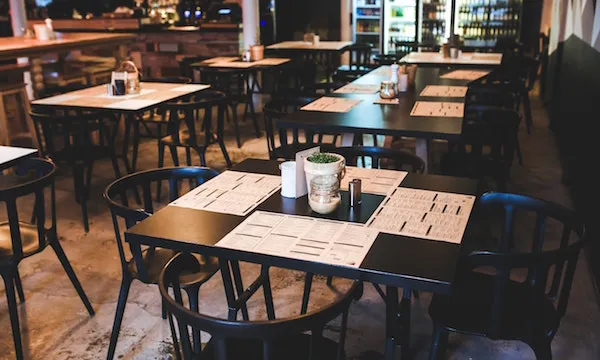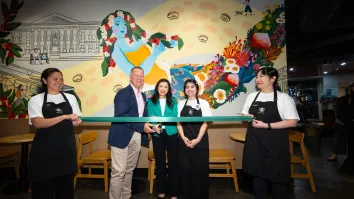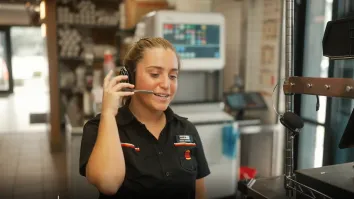
COVID-19's impact: reactions from QSRs, delivery platforms & industry leaders
Chains detail how they are responding to the outbreak.
Cheaper restaurants and delivery services in Australia might see an uptick in demand as the COVID-19 outbreak continues to impact multi-site restaurant industries across the globe.
“The decline in consumer sentiment is expected to primarily reduce demand for high-end/expensive restaurants, as consumers opt to cut back their discretionary spending. We may see increased demand for lower-end restaurants. However, if the virus outbreak proves to be prolonged, and a large number of Australians quarantine themselves, we will likely see a drop in demand for the entire industry,” IbisWorld senior industry analyst James Caldwell explained in an exclusive interview with QSR Media.
He sees the outbreak as having a “moderate effect” on operators in the food and beverage sector, with restaurants, cafes, pubs and other establishments generating a “significant” portion of income from tourists.
“As China is Australia’s largest market in terms of arrival numbers and spend, the current travel ban will likely reduce the pool of customers available for food service companies,” he said.
In terms of food categories, Caldwell specified demand for Chinese cuisine taking a significant hit.
“The fact the virus originated in China has led to a drop in demand for Chinese food, as consumers fear catching the virus. Whilst the likelihood of catching the virus in a Chinese restaurant is no higher than in other restaurants, we have seen some Chinese restaurants close their operations,” he added.
On delivery, Caldwell noted that the sector is expected to have a “minimal impact” as customers may opt to cut on restaurant spending in general and cook meals at home instead along with the “inability” of casual workers such as delivery drivers to take time off work.
“Concerns regarding food safety, is expected to further encourage consumers to prepare their own meals, due to fears regarding potentially infected people handling food,” he said.
“Delivery drivers (such as those working for Uber Eats, etc.) are generally employed on a casual basis, and would be unable to claim sick leave if they are infected, or exposed to the virus. This is expected to discourage these workers from quarantining themselves, and attend work even when they have been exposed to the virus. Media reports regarding the inability of casual workers to take time off work is likely to hinder growth in demand for delivery services.”
How delivery platforms are supporting their riders
In separate statements, the country’s three largest delivery platforms explained their plans to support their restaurant-partners and riders.
“In addition to existing Health and Safety guidelines available to our network, Menulog has provided additional guidance to its restaurant partners and couriers to ensure they have access to the most up-to-date information available. Customers can be confident we are taking food safety and health very seriously and can visit our Help Centre for more information,” a spokesperson for Menulog said.
Uber Eats said it will offer compensation to drivers and delivery people diagnosed with the coronavirus or placed in quarantine for up to 14 days.
“We work closely with public health authorities in each state, and have processes to temporarily remove an individual’s access to the Uber apps if authorities report an infection. Drivers and delivery people around the world are also receiving in-app messages reminding them of basic steps they can take to help prevent the spread of the virus which draws on advice from public health authorities,” Uber Eats ANZ said.
Deliveroo recently rolled out a contact-free delivery feature to enable customers and riders to choose when they order from the food delivery company’s app and website.
Riders will be asked to let customers know they have arrived, place their thermal bags open on the ground outside their door, step back at least 1 metre and wait nearby for the customer to collect the food before the order can be completed.
The platform also announced a ‘hardship fund’ for riders to ensure that those who contract the COVID-19 virus or those who have been instructed to be in isolation by a medical authority will be eligible for financial support.
Contact-less delivery, additional hygiene protocols
Domino’s and Pizza Hut also launched contactless delivery services as a response to the outbreak.
“Additionally, we have auditors in our stores every day of the week, making sure that Domino’s rigorous food safety and hygiene practices are being followed,” Domino’s said in its announcement.
“We have reinforced our good hygiene practices including thorough hand washing and sanitising. When it comes to the food, all food safety measures have been reiterated to all Pizza Hut Australia restaurants,” the pizza chain said. For customers opting to pick up their order, they also implemented a contactless pickup process. Upon entering the store, customers will be asked if they would like a ‘Contactless Pick Up’ and will be directed to a designated pickup point.
Leading and heritage QSR brands across the country also stressed efforts in bolstering their hygiene and sanitation protocols, along with other means to support their staff members and franchisees.
“Subway is actively reinforcing our stringent health and hygiene standards with all restaurant teams. We have also applied additional precautionary health measures including increased cleaning of frequently-touched areas such as chairs, doors and counters. Subway will continue to monitor advice from Australian and global health authorities and implement any extra health measures, as recommended,” the sandwich chain said in a statement sent to QSR Media.
Aside from daily communication with crew to ensure both the safety of their guests and staff, Guzman y Gomez postponed its Free Burrito Days to lessen crowds during the openings of their new stores. The chain recently opened its Auburn outlet last 12 March and is set to open another in Seven Hills by 19 March.
“The restaurants are still opening on those days however with reduced crowds. Given the impact this has had on the entire community, we’re grateful to our guests and crew for their continued awareness as it seems this is impacting everyone, everywhere,” the Mexican chain said.
The Cheesecake Shop, meanwhile, advised its franchisees to take “sensible” precautions such as news monitoring, staying at home if they or their staff feel unwell, frequent handwashing and maintaining strict hygiene and uniform standards.
The bakery chain also recommended franchisees to provide hand sanitisers at the counter for customers and regular cleaning and disinfecting of the cash register area and EFTPOS terminals whilst maintaining “good” stock levels of ingredients.
“The prospect of a downturn in sales resulting from a recession is a threat to all businesses...our franchisees also need to be prepared to put more of their own time into their business and manage their staff rosters according to demand,” The Cheesecake Shop managing director Ken Rosebery said.
He, however, explained that their brand may fare “relatively better” than rely on sit-down patronage or shopping centre traffic due to them providing take-home products from its 230 franchised bakeries, most of which are located in local suburban strips.
“A shift to home catering for birthdays and other family events may even benefit us. “During the recent bushfires when many Sydney and Melbourne residents cancelled their summer coastal holidays in favour of staying at home, The Cheesecake Shop’s franchisees in those cities achieved relatively buoyant sales over this period,” he added.
Their head office is also set up with mobile computing and cloud based IT infrastructure.
“We already collaborate online and allow staff the flexibility to work from home from time to time, so we think we’ll cope well in the event of any forced shutdown. We’ll also look for the opportunities and expect to negotiate better deals on lease renewals over the next while and further develop our delivery capability,” Rosebery added.
Social distancing by staying at home is also a directive issued by Sandwich Chefs to staff in order to mitigate the COVID-19 situation.
“From a business perspective, we are seeing additional support is being needed for online and digital sales, with many customers needing catering or lunch but not being able or inclined to visit a store,” national marketing manager Ollie Mann said.
Aside from focussing on our stringent hygiene processes and adhering to Australian government protocols, La Porchetta has also asked franchisees to avoid accepting reusable cups for take-away beverages.
“We will remain informed about this rapidly changing situation and liaise with our suppliers to ensure we can continue providing our full restaurant services to our La Porchetta community. We will track restaurant metrics to anticipate possible brand impacts and prepare strategies to ensure we’re well equipped as circumstances change,” the chain said in a statement.
Lord of the Fries founder & CEO Mark Koronczyk said the brand introduced additional measures and conducted re-training on existing policies on using a food-grade hand sanitisers, wiping down surfaces, practicing good respiratory hygiene, washing hands more than frequently changing sanitary gloves often and allowing staff to wear masks.
“This includes also ensuring no team members are turning up to work feeling unwell and continuing to enforce and manage this rule across the board,” he said.
“Above all, we are encouraging our team to look out for one another and to support each other, to lend a helping hand and check in with one another, particularly in this time of unknowing to ensure that we work through everything this current challenge may bring us,” he added.
Expert advice recommended
Franchise Council of Australia CEO Mary Aldred recommended that employers get expert advice, observing that a majority of concerns being raised in the restaurant industry are centred around protecting staff and customers and how to manage the business in the event a restaurant needs to close for a period of time.
“We recommend businesses don’t try and make decisions on the run without availing themselves of expert advice. The FCA is providing our members will regular updates on best practice and expert information. We’re also working with our Franchisee Advisory Committee, to get a firsthand understanding of how we can support franchisees with immediate information and resources they need at the moment on a day to day business level. The Federal Government has just announced a stimulus and assistance package aimed at supporting small businesses through this, and that will be introduced to Parliament in the next sitting period in March,” she said.
“There’s a lot of unknowns at this stage, but it’s likely to get harder for businesses before it gets better. To help businesses survive this, there needs to be a focussed, coordinated and properly resourced response. It’s an extremely tough time right now for the restaurant industry. The FCA is absolutely committed to supporting our members through this.”


























